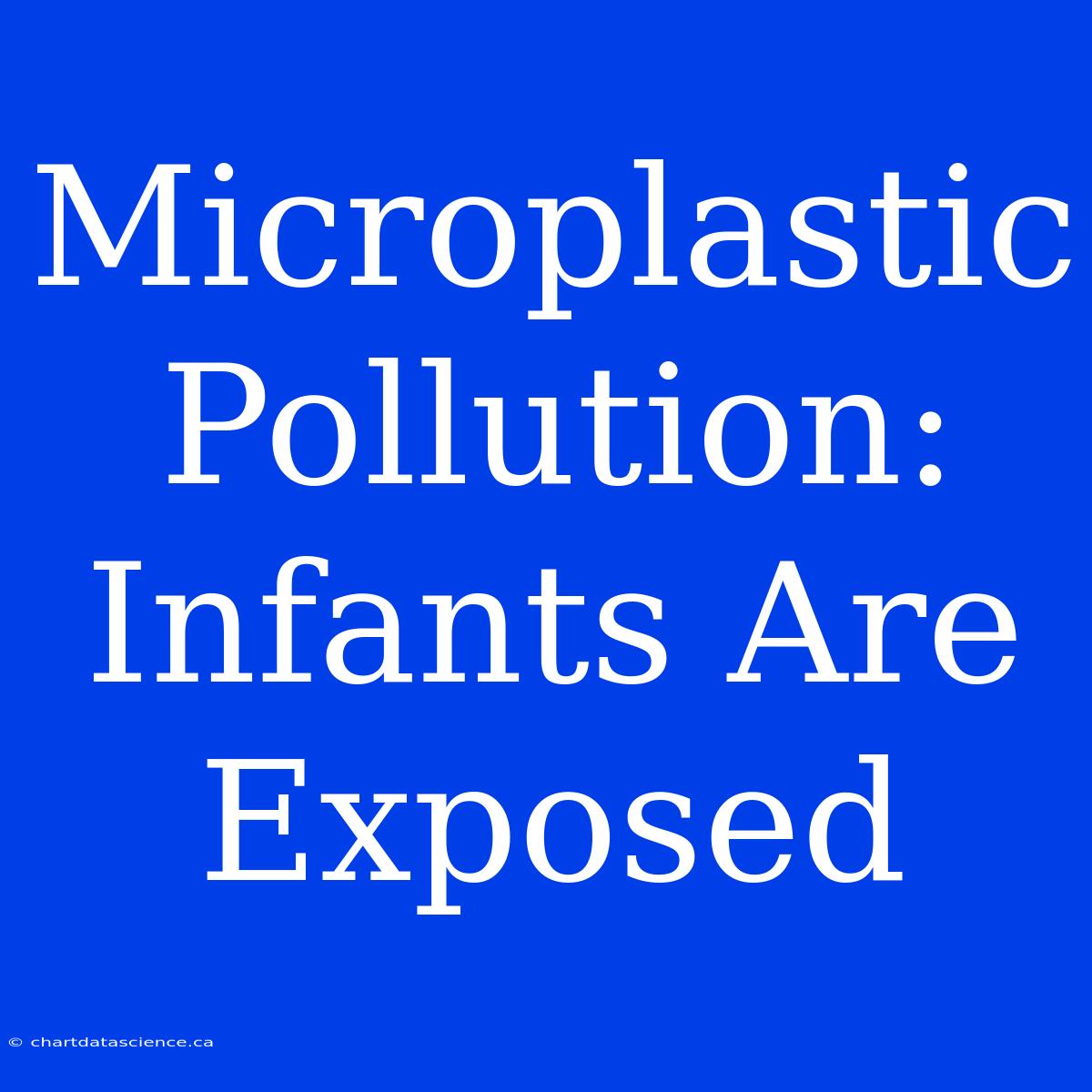Microplastic Pollution: Infants Are Exposed, and It's a Cause for Concern
We all know that plastic pollution is a serious problem, but did you know that even infants are being exposed to microplastics, tiny particles of plastic less than 5 millimeters in size? It's true, and the implications are pretty scary.
Microplastic pollution is a growing problem worldwide. These minuscule particles can be found everywhere, from the deepest oceans to our food and water. And, unfortunately, babies and young children are particularly vulnerable to the effects of microplastics.
How Do Infants Get Exposed to Microplastics?
Infants are exposed to microplastics in many ways. Some of the most common include:
- Breast milk: Studies have shown that microplastics are present in breast milk, which is a primary source of nutrition for infants.
- Formula: Microplastics have been found in formula milk powder.
- Baby bottles and feeding equipment: Plastic baby bottles and other feeding equipment can leach microplastics into infant food.
- Dust: Microplastics are present in dust, and babies spend a lot of time on the floor, where they are exposed to dust.
- Toys: Many toys are made of plastic, and young children often put toys in their mouths, leading to microplastic ingestion.
What Are the Potential Health Risks?
The long-term health effects of microplastic exposure in infants are still being investigated, but there are some serious concerns.
- Digestive issues: Microplastics can irritate the digestive system and may interfere with nutrient absorption.
- Hormonal disruption: Some types of plastics can disrupt hormones, which could affect infant development and growth.
- Immune system problems: Microplastic exposure may weaken the immune system, making infants more susceptible to infections.
- Neurological problems: Some studies suggest that microplastics could have negative effects on brain development.
What Can We Do?
It's crucial to take steps to minimize infant exposure to microplastics. Here are a few things you can do:
- Choose BPA-free baby bottles and feeding equipment: BPA is a type of plastic that is known to be harmful.
- Wash baby bottles and feeding equipment thoroughly: Make sure to use hot water and a good quality dish soap to remove any traces of microplastics.
- Avoid using plastic toys that babies put in their mouths: Opt for toys made of natural materials like wood or cotton.
- Reduce plastic use in your home: This will help to reduce the amount of microplastics in your environment.
- Support policies that aim to reduce plastic pollution: Advocating for change is crucial!
Infants are particularly vulnerable to the harmful effects of microplastic pollution. It's vital that we take steps to protect them and ensure a healthier future for our children.

